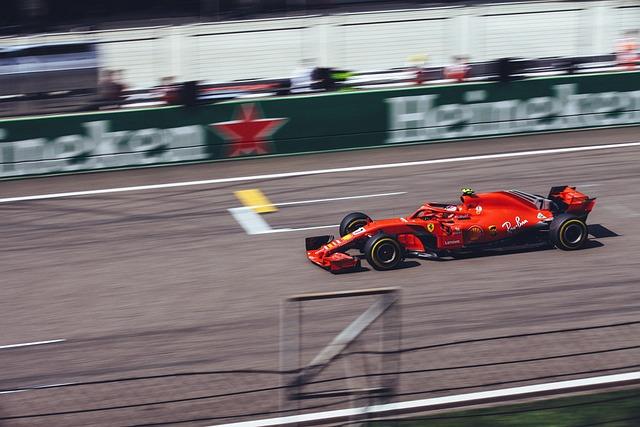As the sports industry faces rapid transformation driven by technological innovation and shifting consumer behaviors, Deloitte’s latest report, “Future of Sports,” offers a comprehensive analysis of the trends set to redefine the playing field. From emerging digital platforms and data analytics to evolving fan engagement and sustainability initiatives, the report outlines how stakeholders-from leagues and teams to brands and broadcasters-are adapting to a new era. This article delves into Deloitte’s key insights, exploring what lies ahead for sports in a landscape increasingly shaped by disruption and opportunity.
Emerging Technologies Set to Revolutionize Athlete Performance and Fan Engagement
Advancements in wearable technology and AI-driven analytics are transforming how athletes train and perform. Cutting-edge devices now provide real-time biometric data, enabling coaches to tailor training programs with unparalleled precision. These innovations not only enhance physical conditioning but also reduce injury risks through early detection of fatigue and stress markers. Moreover, immersive technologies such as augmented reality (AR) are being integrated into training regimens, offering athletes simulated game scenarios to sharpen decision-making skills without the physical toll.
Fan engagement is entering a new era, fueled by interactive platforms and immersive experiences that bridge the gap between spectators and the sport. Virtual reality (VR) enables fans to experience games from unique perspectives, such as courtside or even player-level views. Teams and leagues are leveraging blockchain for secure ticketing and exclusive content distribution, while AI-powered chatbots and social media integrations create personalized interactions around events. Key trends reshaping the fan landscape include:
- Real-time stats and insights delivered via mobile apps
- Interactive second-screen experiences during live broadcasts
- Fan tokens and digital collectibles enhancing loyalty and community participation
| Technology | Impact on Athletes | Impact on Fans |
|---|---|---|
| Wearable Sensors | Optimized Training & Injury Prevention | Exclusive Access to Performance Data |
| Virtual Reality | Simulated Game Experience | Immersive Viewing Perspectives |
| Blockchain | Secure Athlete Data Management | Verified Ticketing & Collectibles |
| AI Analytics | Personalized Training Feedback | Tailored Content Recommendations |
Sustainability Practices Redefine the Sports Industry’s Environmental Impact
Leading organizations across the sports sector are pioneering innovative methods to drastically reduce their carbon footprints. From stadiums powered entirely by renewable energy to zero-waste event strategies, the focus has shifted toward embedding sustainability at every operational level. Key initiatives include:
- Green stadium designs featuring solar panels, rainwater harvesting, and energy-efficient lighting systems.
- Eco-friendly transportation options for fans, including electric shuttle buses and enhanced public transit partnerships.
- Sustainable merchandise crafted from recycled or organic materials to minimize waste and pollution.
These measures not only reduce environmental impact but also build a new model of fan engagement centered on shared responsibility and transparency. In fact, a recent Deloitte survey highlighted that 72% of sports fans prefer supporting teams actively committed to sustainable practices, underscoring the growing demand for environmental accountability.
| Initiative | Environmental Benefit | Impact Level |
|---|---|---|
| Solar-powered stadiums | Reduces reliance on fossil fuels | High |
| Zero-plastic policies | Minimizes landfill waste | Medium |
| Carbon offset programs | Neutralizes travel emissions | Medium |
| Smart water usage systems | Conserves critical resources | High |
Data Analytics Drive Strategic Decisions and Personalized Experiences
Sports organizations are harnessing the power of data analytics to revolutionize decision-making processes and enhance fan engagement. By scrutinizing vast datasets, teams and leagues gain critical insights into player performance, injury prevention, and game strategies. This analytical approach not only optimizes on-field results but also shapes off-field business tactics such as ticket pricing, merchandising, and sponsorship alignments. As a consequence, data-driven strategies are becoming the backbone of sustainable competitive advantage in an increasingly complex and fast-paced sports landscape.
Moreover, personalized experiences are emerging as a key differentiator in fan loyalty and satisfaction. Using advanced algorithms and real-time data feeds, sports entities tailor content, offers, and interactions to meet individual preferences. Below is a snapshot showcasing how analytics influence different facets of the sports ecosystem:
| Application | Impact | Example |
|---|---|---|
| Performance Metrics | Optimized player training and game tactics | Tracking player biometrics |
| Fan Engagement | Customized content delivery and promotions | Personalized ticket offers |
| Business Decisions | Revenue maximization through dynamic pricing | Adjusting ticket prices in real-time |
- Real-Time Analytics: Deliver actionable insights during games for split-second decisions.
- Predictive Modeling: Forecast player injuries and peak performance windows.
- Sentiment Analysis: Gauge fan reactions across social media platforms to refine marketing strategies.
Investment in Grassroots Programs Key to Long-Term Growth and Inclusion
Allocating resources to grassroots initiatives not only fosters athletic talent from an early age but also cultivates a more inclusive sports culture across diverse communities. These programs serve as a foundation where future champions and engaged fans alike can emerge, breaking socioeconomic barriers that often limit access to high-level sports training and facilities. By emphasizing local engagement, sports organizations and governing bodies can create pathways that nurture both skill development and a sense of belonging.
Key benefits of supporting grassroots programs include:
- Enhanced community health and wellness through increased physical activity.
- Development of social cohesion and teamwork skills among participants.
- Access to opportunities for underrepresented groups in sports.
| Impact Area | Long-Term Benefit |
|---|---|
| Youth Engagement | Higher retention in sports programs |
| Economic Growth | Boost in local sports-related jobs |
| Diversity & Inclusion | More equitable representation in professional leagues |
To Wrap It Up
As the landscape of sports continues to evolve rapidly, Deloitte’s insights underscore a future defined by innovation, technology, and changing consumer behaviors. From the integration of advanced analytics and immersive fan experiences to the growing emphasis on sustainability and inclusivity, the next era of sports promises to reshape how the games are played, watched, and valued worldwide. Stakeholders across the industry will need to adapt swiftly to these shifts, ensuring that the excitement and spirit of sport remain vibrant for generations to come. Deloitte’s forward-looking analysis serves as a crucial guide for navigating this dynamic and transformative journey.





